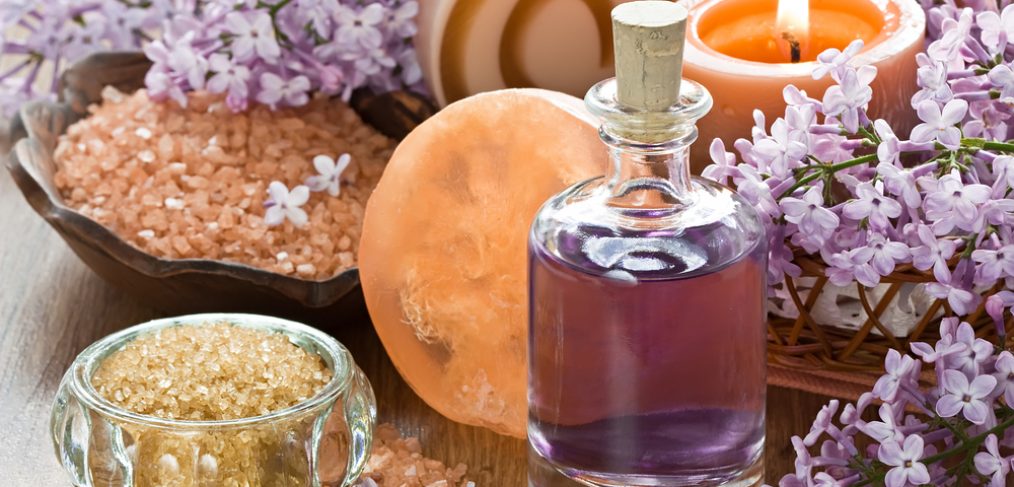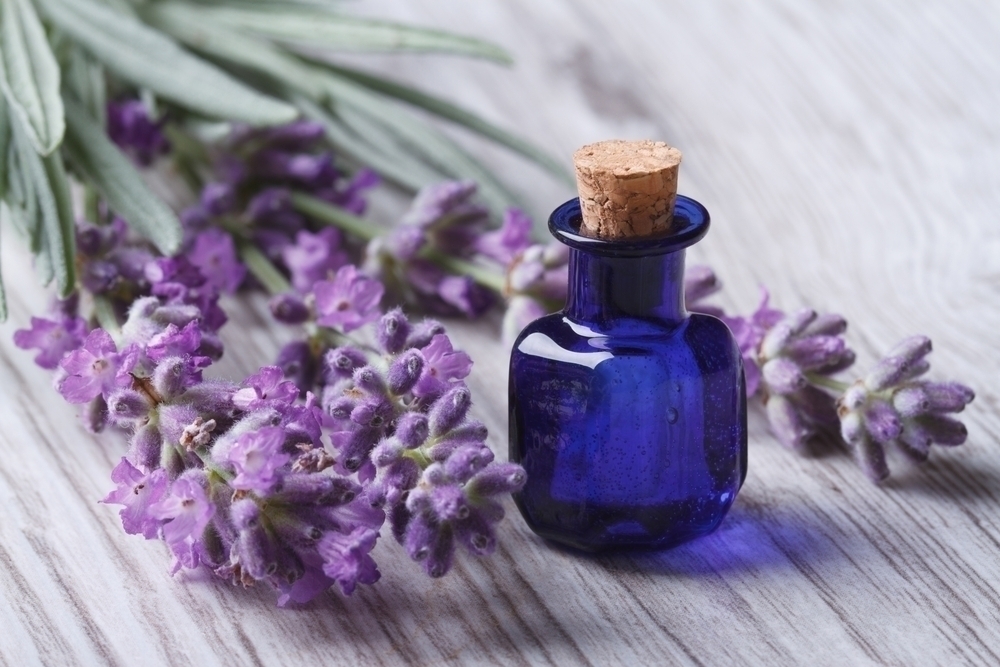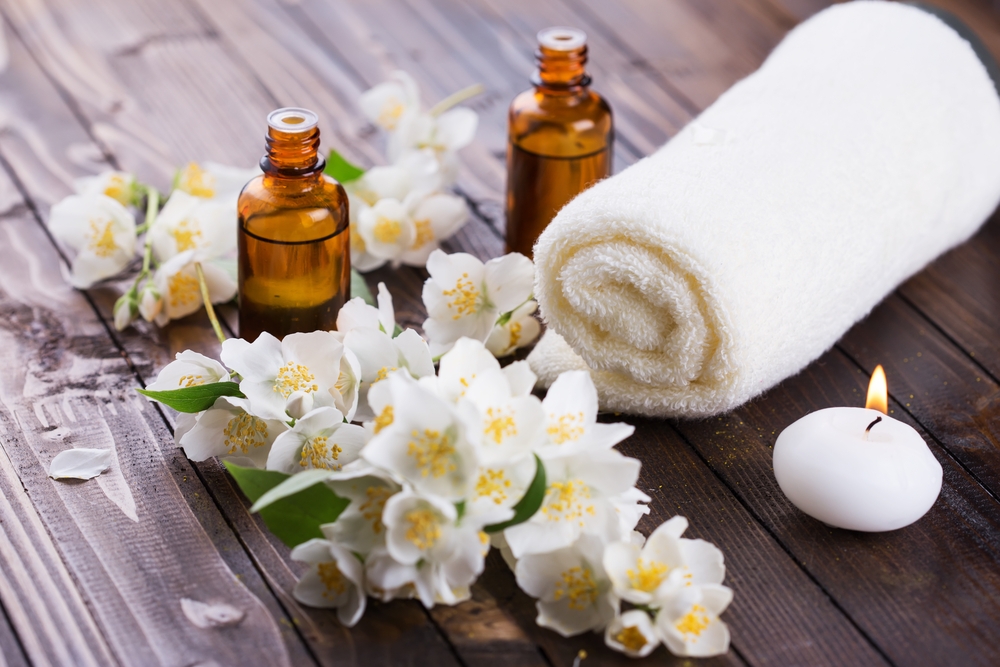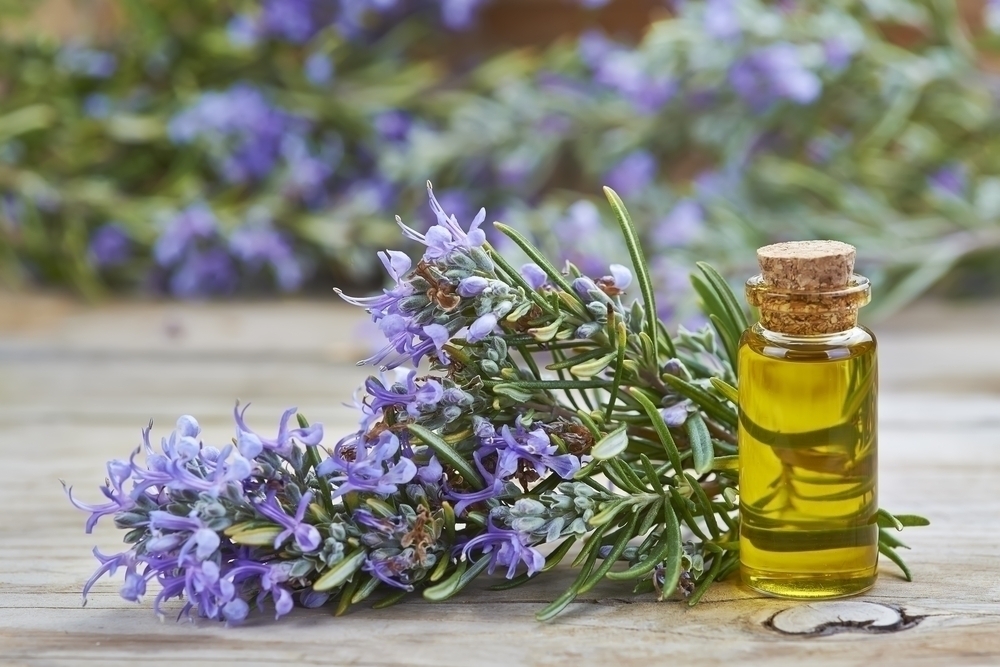Has the winter cold been getting to you?
Try turning to some of these warming scents to lift your winter mood back up…
Ginger
A plant native to Asia, ginger is a spice that has long since been recognized for its medicinal properties, and these qualities are reflected in its essential oils too.
The oil is created from distilling the root of the plant, which is the same part of the plant that is eaten. This gives the oil a hot and spicy aroma, making it perfect for the cold days of winter.
Ginger is also such an energizing scent, and will help to keep your spirits high. This is so important in the winter, at a time when loneliness and depression are more common.
Wondering how strong the scent of this oil is?
That all depends on the quality of the oil, as well as how the plant was distilled. The better the quality, the stronger the scent. With that being said, even the strongest scented ginger essential oils can still be relatively light, especially when compared to the aroma of the root when it has been freshly sliced.
What’s the best way to make use of ginger essential oil?
An aromatherapy diffuser is the easiest way to enjoy the distinct scent of ginger, especially since this means that you can easily create your own essential oil blend.
Ginger works especially well with citrus oils, as this gives it a sweeter scent. Sweet orange oil, which will be discussed further down, is a great choice.
Cinnamon
Cinnamon essential oil comes from the bark of the cinnamon tree, and is known for its warm and sweet aroma.
It also brings with it a number of health benefits that are particularly important in the winter months, such as:
- Preventing colds and coughs
- Relieving pain
- Fighting off infections
- Boosting circulation
- Reducing stress
- Improving digestion
This is a great oil to use in a diffuser, because its earthy and spicy scent is one that tends to linger around in a room for hours.
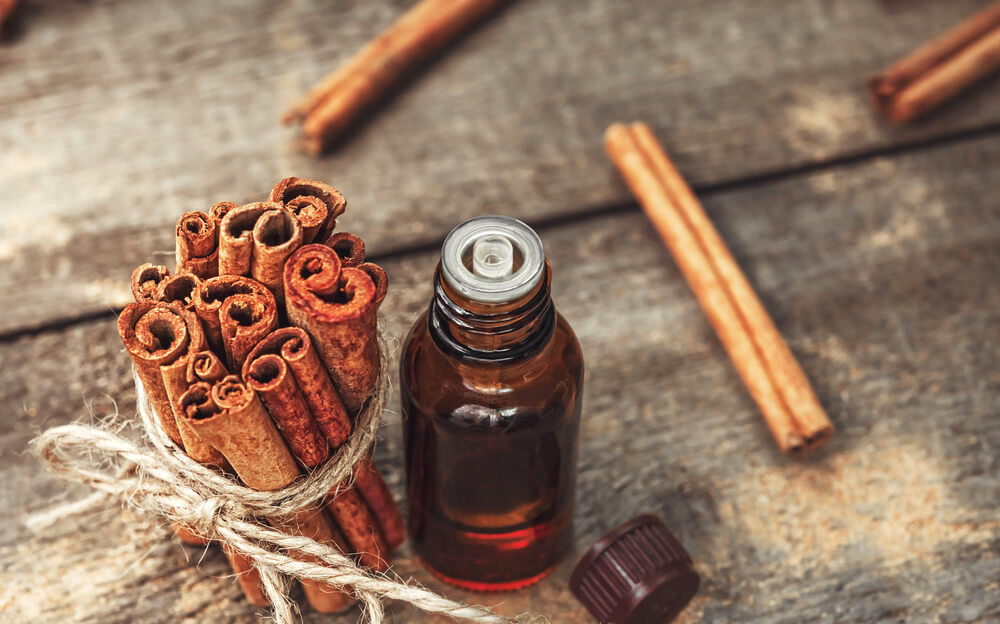
One thing to know about cinnamon essential oil is that it features quite a strong scent, and it can often be overpowering when used on its own. Try mixing the cinnamon with sweet orange, jojoba or bergamot oil for a softer and more delicate fragrance.
Juniper Berry
With a sweet, woody and crisp aroma, juniper berry is known for being quite a stimulating scent. If you drink gin, then you will recognize the scent immediately, as these berries are what give gin its unique flavor.
This is a cleansing and purifying oil, and was used for years by Native Americans as a way to clean the air. It will give your immune system a boost, which is always helpful in the winter months.
In addition to cleansing, the scent of juniper berry is also a relaxing one, making it great at calming the mind and body while inducing sleep.
Try mixing this refreshing oil with one of the following to maximize its effects:
- Grapefruit
- Sweet fennel
- Cypress
Sweet Orange
Sweet orange is such a versatile essential oil, with its uplifting scent able to quickly disperse through a room. Although it is often referred to as just orange oil, make sure that you are not purchasing bitter orange oil instead, as this oil has different qualities.
Sweet orange oil is cheerful and happy, making it perfect for a gloomy winter’s day. It is commonly used in aromatherapy as a way to encourage feelings of warmth and happiness, as well as for detoxification purposes.
Unlike most other essential oils, which are extracted through steam distilling, sweet orange oil is usually cold pressed, with the oil coming from the rind of the fruit. While there are steam distilled versions available, a cold-pressed sweet orange oil is the one to go for.
Why?
Because the heat produced by the steam in the distillation process degrades the content of citral within the oil, which is an important compound when it comes to the oil’s therapeutic properties.
Are you allergic to citrus fruits?
If so, sweet orange oil is not one that you should be using. Even if you are just diffusing the oil into the air, it could still cause irritations or allergic reactions.
Clove Bud
Cloves are a spice that come from a tree native to Southeast Asia.
There are three types of essential oils that can be created from cloves, and these are:
- Clove leaf oil
- Clove bud oil
- Clove stem oil
Which one is best?
Many would say clove bud oil. This is because of the fact that the leaves and the stems of the plant contain a much more potent chemical composition, which can often result in those oils causing irritations.
When it comes to medicinal uses, clove oil is known for its anesthetic, antiseptic and antimicrobial properties, and is a popular remedy when it comes to soothing toothaches, mouth infections and even bad breath.
What about its scent?
Warm and spicy, clove essential oils are able to help with common winter ailments, including colds, coughs and sinusitis. It can also help with digestive problems, such as nausea, making it quite the therapeutic oil.
Not only that, but clove oil increases blood circulation, which can go a long way in boosting heart health during the winter.
All of these properties come down to the eugenol content within the oil, which makes up around 90% of the oil. This is what gives the oil its warming and stimulating qualities.
Want to create a clove oil blend?
Clove oil works well with other spicy oils, such as cinnamon, as well as citrus and floral oils.
Nutmeg
Sweet, warm and slightly woody, nutmeg essential oil comes from the seeds of the Myristica fragrans tree, which is an evergreen tree that is native to Asia.
Its scent is quite a well-rounded one, being spicy and light but deep and musky at the same time.
When used aromatically, this oil has the ability to boost circulation, which is so important in the winter.
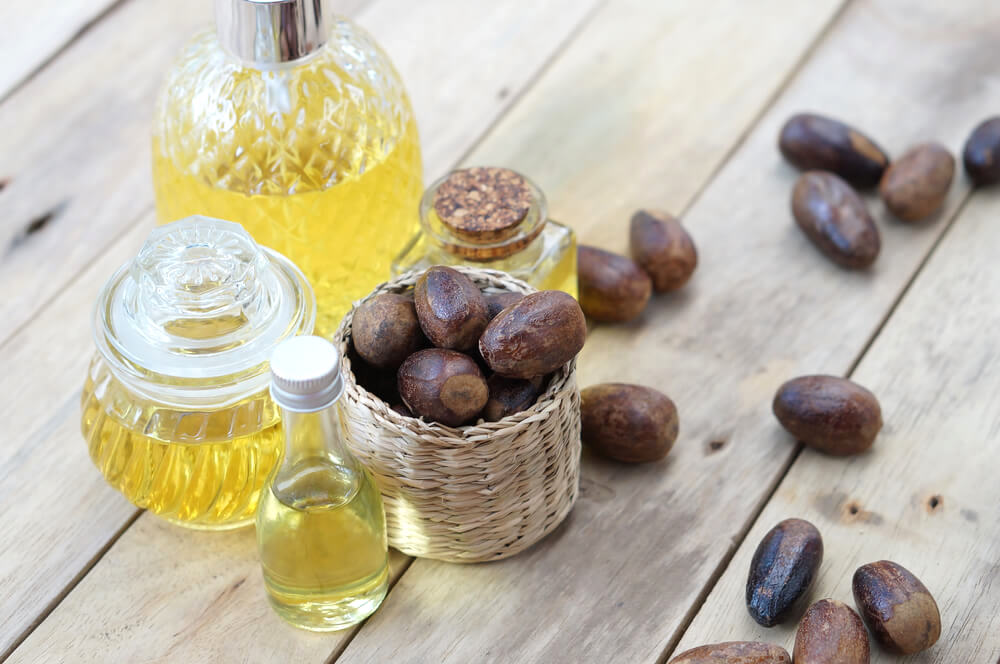
Why?
Because the cold weather causes blood vessels to constrict, which means that your circulation is reduced. Your heart then has to pump so much harder in order to get your blood flowing around your body, which can put a lot of strain on it.
The stimulating scent of nutmeg is also known for being able to improve cognitive function. It clears away feelings of stress and exhaustion, while improving concentration and productivity.
Want to create your own unique blend with nutmeg?
Try mixing it with some of the following essential oils:
- Black pepper
- Cinnamon
- Clove
- Rosemary
- Clary sage
- Coriander
- Frankincense
Cedarwood
Distilled from the bark of the cedarwood tree, cedarwood essential oil has such a pleasing aroma, which is why it is incorporated into so many different perfumes.
However, in addition to its distinctly woody and sweet scent, cedarwood essential oil brings with it a few other benefits…
One of these is the way in which it can help the respiratory system. Being a natural sedative, cedarwood can help to soothe certain respiratory conditions, such as asthma and chronic coughing.
Its sedative properties also mean that this oil is effective at relaxing the body and inducing sleep.
How does it do this?
Its aroma triggers the body to release serotonin, which the brain then converts into melatonin. This extra melatonin is what will give you a long and restful sleep.
The serotonin also helps to reduce feelings of stress and anxiety, improving and stabilizing your mood.
Not only are all of these qualities reasons as to why cedarwood is so often used in perfumes, but it also blends really well with other scents too, making it so versatile.
If you would like to create your own cedarwood blend, try mixing the oil with one of the following:
- Lavender oil
- Chamomile oil
- Citrus oils
Is there anyone who shouldn’t use cedarwood essential oil?
Yes, if you are pregnant.
Why?
Because of the way in which it can induce menstruation, which can be dangerous during a pregnancy.
Cardamom
A plant belonging to the ginger family, cardamom is a spice that comes from the seed pods of the plant. Not only is it used for cooking all over the world, but the scent of the oil is perfect for the winter months.
The oil has quite a bold and punchy fragrance, with notes of sweetness, spiciness and nuttiness all at the same time. It exudes an air of mystery and exoticism, which is partly what gives it its energizing and uplifting qualities.
While its scent may seem strong and potent, cardamom is actually quite a gentle essential oil. Its fragrance stimulates neurotransmitters in the brain, which not only give it a relaxing effect, but also helps to prevent nausea, especially from chemotherapy or pregnancy.
This oil is also able to soothe the mind, reducing depression and exhaustion while increasing concentration and focus. It is known for being able to provide motivation, which many find themselves in need of during the winter.
Although cardamom is such a beneficial oil, many find its scent to be too spice-like.
If this is the case for you, try mixing cardamom essential oil with one of the following to tone its scent down a bit:
- Ginger essential oil
- Fennel essential oil
- Chamomile essential oil
Vanilla
The sweet scent of vanilla is instantly recognizable, and so many find this fragrance extremely comforting.
This isn’t a coincidence either…
Vanilla essential oil is known for being able to lift the mood and promote feelings of happiness. It provides a calming effect to the brain, countering any anxiety and restlessness. It does this to such a great extent that it has been used by hospitals for decades to keep patients calm and prevent claustrophobia before an MRI scan.
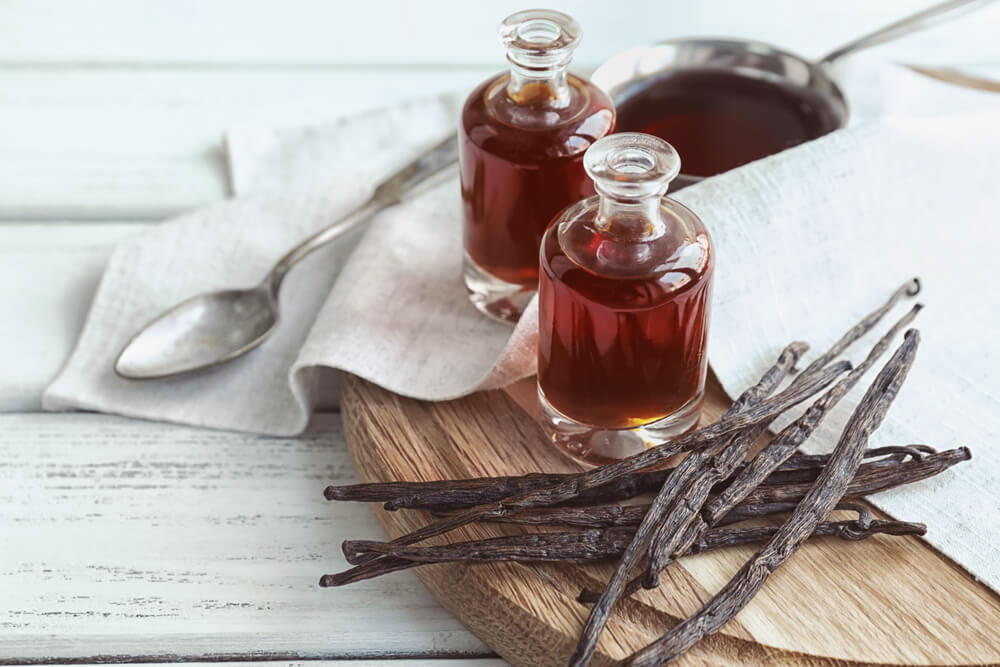
Vanilla is also able to lower blood pressure and encourage a restful sleep, which is why this is an oil often used in the evenings.
For those who find that their sex drive tends to take a dive in the winter months, vanilla can help with this too.
How?
Thanks to its aphrodisiac effects. The scent of the oil is able to increase levels of estrogen and testosterone in the body, encouraging physical intimacy.
When purchasing vanilla essential oil, there is one important thing to keep in mind…
Many vanilla oils have been created synthetically. This is understandable when you consider the fact that vanilla is the second most expensive spice in the world to produce.
Why is it so expensive?
Because it is a difficult one to grow, and the drying, curing and extracting process is also extremely time-consuming and labor-intensive.
With that being said, synthetic versions of the oil only contain a tiny concentration of vanillin, which is the compound that gives the oil its therapeutic effects, as well as its distinct scent.
While it may be quite costly to purchase a natural vanilla oil, this is definitely worth it if you want to experience the spice’s true health benefits.
Scotch Pine
Distilled from the pine needles of the Pinus sylvestnis tree, Scotch pine oil is woody, earthy and fresh, as well as incredibly warming.
This is a cleansing and clearing oil, not only in terms of air quality but also when it comes to a cluttered mind. It is often used before a meditation session, as it uplifts the mood and clears away negative thoughts.
It is also able to help reduce feelings of fatigue, which is something that many experience on a dreary winter’s day.
If you do decide to purchase Scotch pine oil, keep in mind that it contains around 90% monoterpenes. This means that the oil degrades easily when it comes into contact with heat or light, so you are best off storing your oil in the refrigerator.
There are hundreds of essential oils out there, but some are definitely better suited than others to the winter months. These ten warming oils are perfect for the colder season, and will leave you better equipped to deal with all that the winter throws at you.






